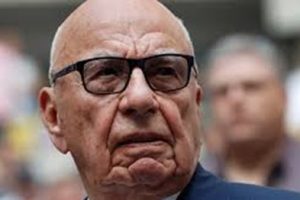Nigeria’s central bank has ended its distorted foreign exchange rate, a move the new government in Africa’s biggest economy hopes will help woo investors and stabilize the local currency.
Nigeria’s central bank has ended its distorted foreign exchange rate, a move the new government in Africa’s biggest economy hopes will help woo investors and stabilise the local currency.

The announcement Wednesday from the Central Bank of Nigeria led to a record fall in the value of the naira currency to 755 per U.S. dollar.
It has since recovered some.
The move reflects the changes that new President Bola Tinubu has pledged to make to strengthen the ailing economy, analysts said.
Samuel Badejo, banker and resident of Legolas, said the changes seems to be positive but he remains cautious about the results.
“I don’t want us to judge quickly that he (Tinubu) has started acting, we just want to see what he’ll do for the first 100 days,” Badejo said.
Nigeria has for years operated multiple exchange rates for the naira — with the official exchange rate dictated by the central bank, while a far higher unofficial rate determined the price of imported commodities like wheat, which are priced in dollars.
The exchange rate now will be determined by market forces and no longer the central bank, a move that analysts on Thursday said would boost inflows of money and help stabilise an economy battered by surging inflation and a record unemployment rate.
But it also is expected to make the price of imported goods more expensive, which could affect many in a country heavily reliant on imports.
Sam Chidoka, CEO of Kairos Capital, said that government debt is also expected to rise due to some of the borrowings being in U.S. dollars, which will lead to “total debt to GDP” also increasing.
The multiple exchange rates also meant foreign investors had been forced to sell outside currencies to Nigeria’s central bank at the official rate and had been unable to access foreign money amid the country’s severe dollar shortage.
That has affected many foreign businesses, including international airlines whose revenues that were trapped in Nigeria amounted to $450 million as of June last year.
Tinubu has vowed that his “economic policies shall be guided by our desire for a stronger, more stable Naira founded upon a vibrant and productive real economy.”
Shortly after he took office, Tinubu suspended Godwin Emefiele, the central bank governor who was under fire for pushing new currency notes that led to a critical lack of cash for people to pay for their everyday needs.
He has since been arrested.
Tinubu also halted subsidies for gasoline, forcing people to pay far more for fuel they need to travel and power generators at home.
Now, the currency devaluation is expected to push up prices for imports like food amid a significantly higher foreign exchange rate.
The Nigerian leader, meanwhile, on Thursday inaugurated a key economic team chaired by Vice President Kashim Shettima, which advises him on the country’s economic affairs.
Tinubu also suspended the head of the West African nation’s anti-graft agency for alleged abuse of office.
Abdulrasheed Bawa was suspended indefinitely as chairman of Nigeria’s Economic and Financial Crimes Commission following the “weighty allegations of abuse of office leveled against him,” the Nigerian presidency said in a statement.
Moments after he was suspended, Bawa was taken into custody by the country’s secret police in the capital of Abuja.
The move was related to the investigations into his activities, according to Peter Afunanya, spokesman for Nigeria’s Department of State Services.
Prudent Odeh, another resident and travel consultant, said that the changes were indicative of Tinubu “trying to eliminate those people that are not competent in their position,” and in turn, “better Nigeria”.
Source: AFRICANEWS




















Add Comment